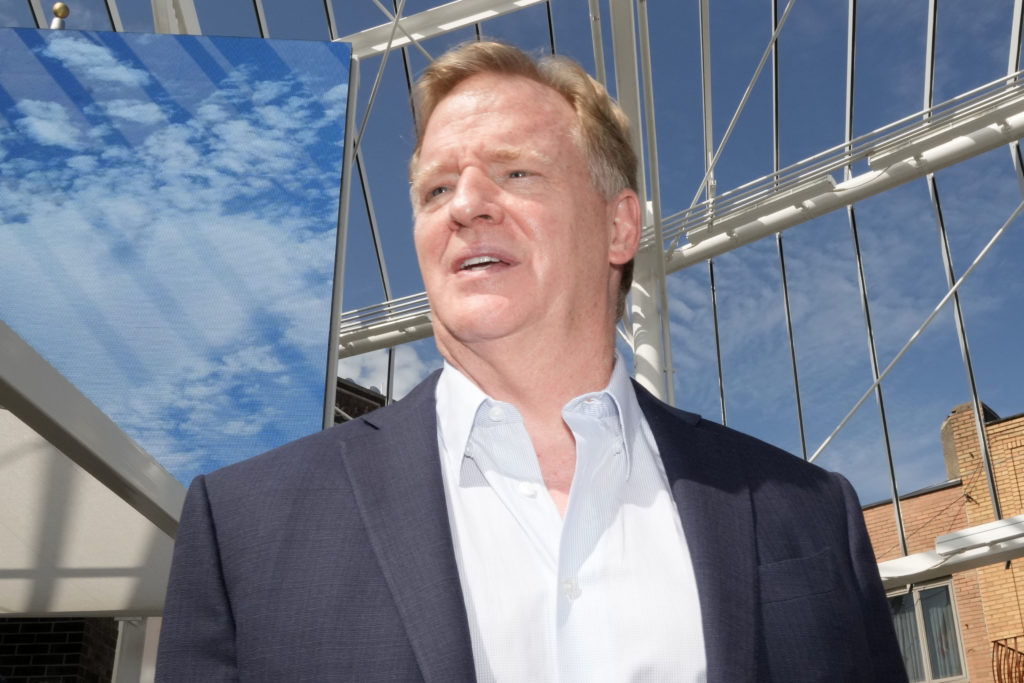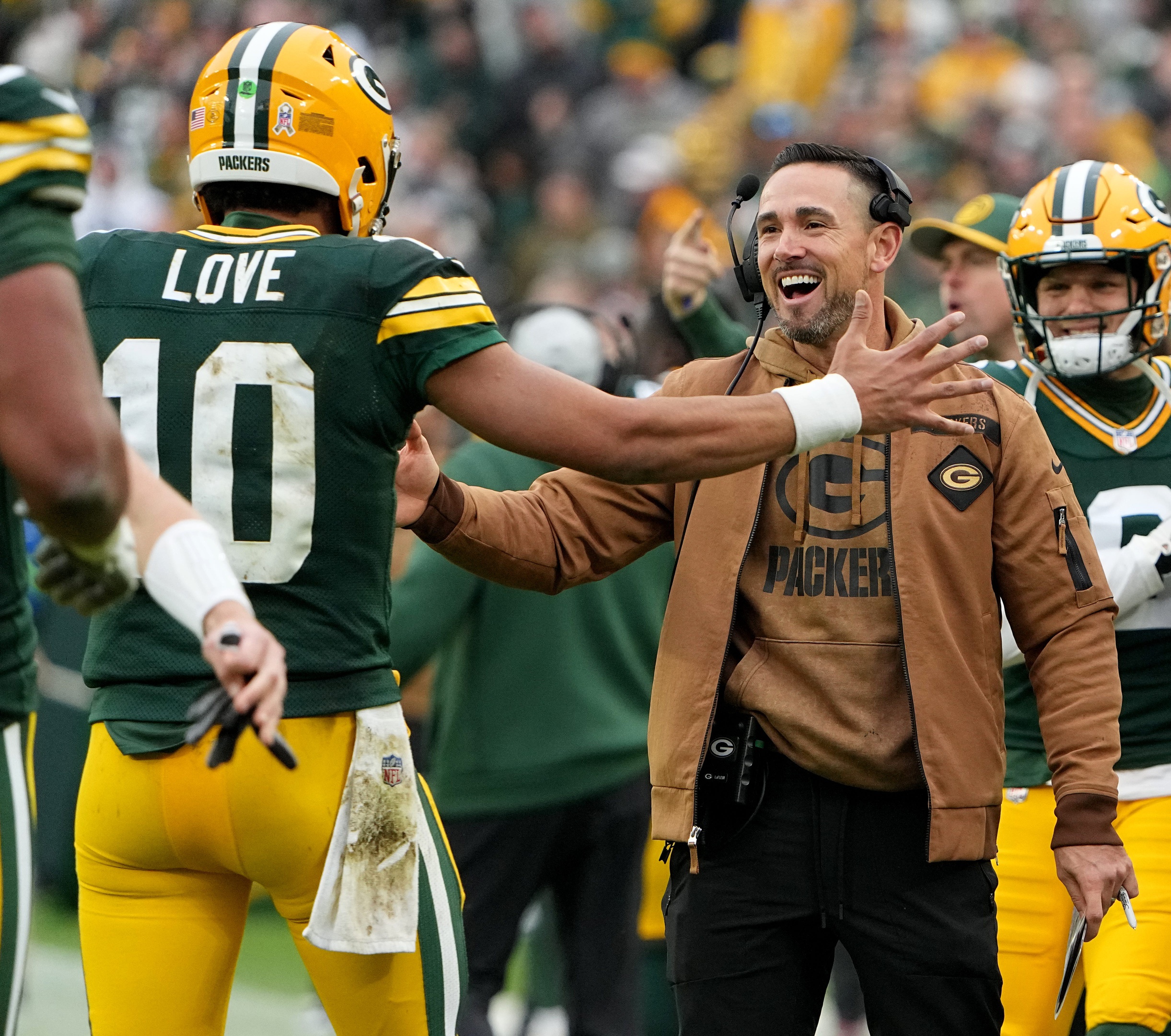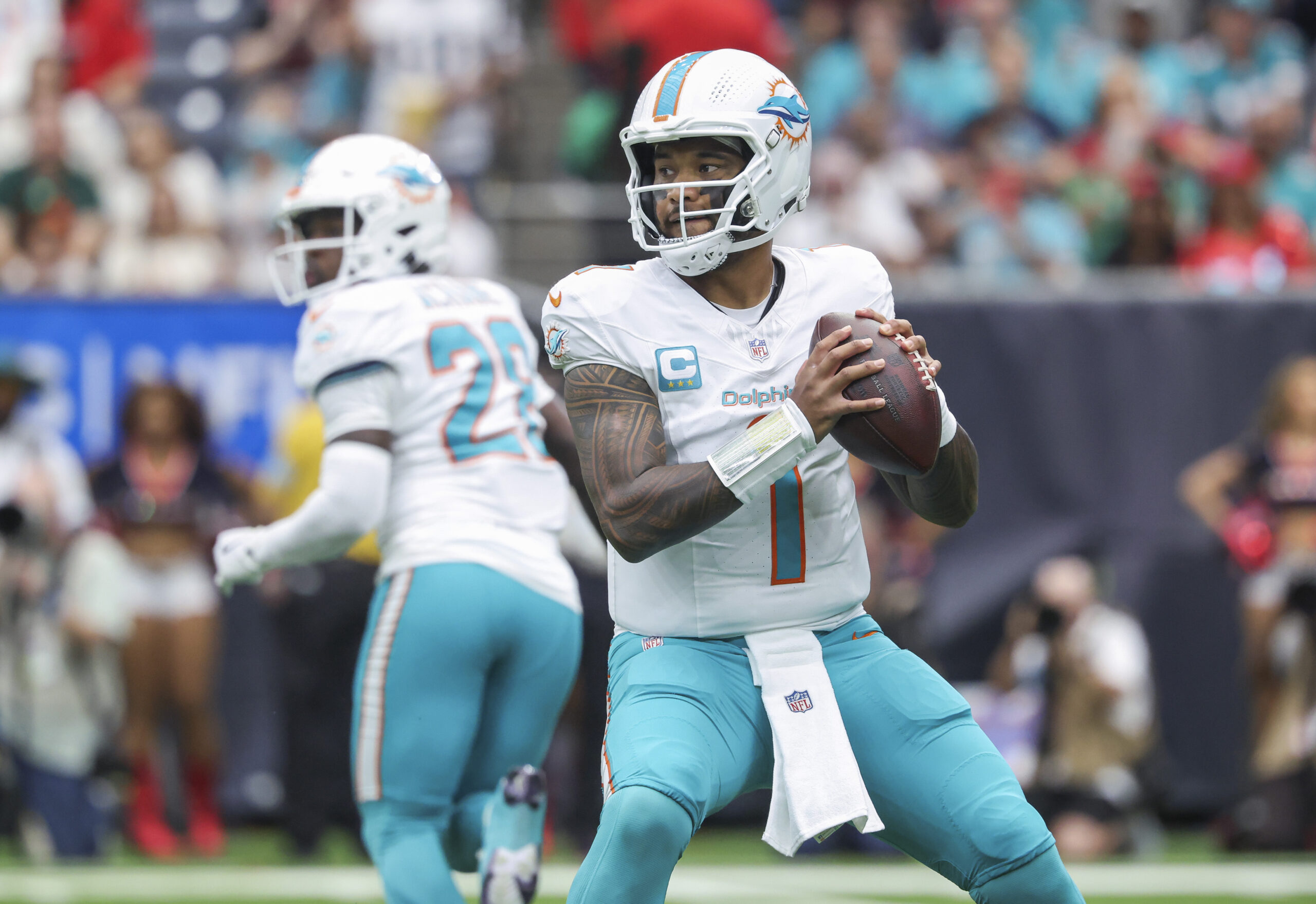Expert Analysis
8/20/22
6 min read
Goodell is not NFL's Judge and Jury ... That's a Good Thing

There’s been a constant drumbeat in the press, I think encouraged by agents, that the NFL commissioner is judge, jury and executioner when it comes to disciplinary action with players.
That is rather far from the truth.
In the present iteration of the collective bargaining agreement between the league and the players, he’s only the appeals officer. And that’s probably a good thing.
Let me share some first-hand experience of the inner workings of league discipline.
After I left the Buffalo Bills in 1993, I was working for the NFL Management Council at the league office in New York, implementing what was then a new CBA on which I had worked as general manager of the Bills.
Though my title was vice president for football development, there was, in that CBA, a position established for an overseer of player discipline. The choice of who would fill it required the approval of the NFL Players Association, as well as the league. Then-Commissioner Paul Tagliabue asked if I wanted the job and said Gene Upshaw, the head of the NFLPA at the time, was good with it being me, so I accepted.
At the time, the NFL had no personal conduct policy; that wouldn’t come along until 2007. My responsibility involved on-field transgressions. We were very cognizant of helmet-to-helmet hits and certain competitive violations that took place around the game.
But the process of meting out player discipline remains largely the same.
Any potential violation is investigated by NFL security, which has former FBI agents, former high-ranking police officials and, with respect to certain violations of the personal conduct policy, former high-ranking prosecutors like Lisa Friel. They conduct thorough investigations based the evidence they can adduce. They do not have subpoena power, but they do have the power of the shield to remind employees of the league, when they’re part of an investigation, that they’re required to tell the truth, the whole truth and nothing but the truth. And if you do not and it’s found out that you do not, you can lose your job.
Punishment Doesn’t Come Instantly
It’s been my experience that they get good information. Most importantly, they’re very thorough. Unfortunately, in the field of professional athletics, people want instant investigations and instant adjudication and instant punishment.
It doesn’t work that way.
Even back in the early ’90s, when we were involved with investigating on-field issues that were easily discerned by looking at film, I would be joined by the league's general counsel, a representative of the Management Council and in some cases, the director of officiating. They were there to make sure that we were interpreting the rule correctly, that we were interpreting the constitution and bylaws of the league correctly, and that we were taking care to fulfill every tenet of the collective bargaining agreement, which gave the players numerous rights in those situations. We had to follow that to the letter.
As a result, it takes time to do those things – time and effort and energy. It isn’t open and shut. It isn’t, “Oh, yeah, this guy is guilty. Let’s suspend him.” That’s not the way it works at all. In fact, it’s the other way around.
At the end of that process, we would make a recommendation to the commissioner, if there was a finding of violation of the rule, as to what the penalty ought to be: a fine or suspension. For on-field violations, much of that is spelled out in the CBA. In her ruling of a six-game suspension of Deshaun Watson, Judge Sue Robinson pointed out that she used precedent typical of cases such as that, even though his was unique. That’s what the lawyers are there to help you do.
Whatever decision the disciplinary process recommended would be subject to the commissioner’s approval and appeal. In the Watson case, which is governed completely by the CBA, the judge made her decision and issued a punishment. The league chose to appeal. The union, on behalf of Watson, did not.
It should be noted that the investigation ends when the original recommendation is presented to the commissioner. From there on in, the appeal is only on issues such as the length of the suspension. No new evidence can be introduced.
Opposing Lawyers can Always Settle
The commissioner appointed a designee as the appeals officer, Peter C. Harvey, the former attorney general of New Jersey. At any time in that appeals process, representatives of the NFLPA can sit down with representatives of the Management Council. In most cases, these are lawyers who have previous relationships as they oppose each other a great deal, yet can always arrive at a settlement. That’s what occurred here.
The players’ agents are also involved, but they don’t have any statutory power. All the power is vested in the NFL Players Association, the Management Council and/or the commissioner's office. What happened here was the two parties simultaneously arrived at a settlement that made sense for both.
But the idea that Watson’s 11-game suspension and $5 million fine came out of a kangaroo court, as has been described in some Internet circles, is completely wrong. The NFL is required by the CBA to protect and to abide by the rights given the players in the CBA and they’re scrupulous in doing so. They’re scrupulous in trying to have very complete and thorough investigations, which adduce the appropriate facts.
The problem is sometimes facts don’t come to light until after a case has been decided or after a case is far down the road. And when it comes to personal conduct, a lot of the times it’s he said, she said, and those are hard cases to deal with. But in all cases, the league takes great care to make sure that players’ rights are protected, and the union is zealous in guarding those rights.
It is not a one-sided kangaroo court by any means. That’s a complete misnomer.
As told to Vic Carucci








